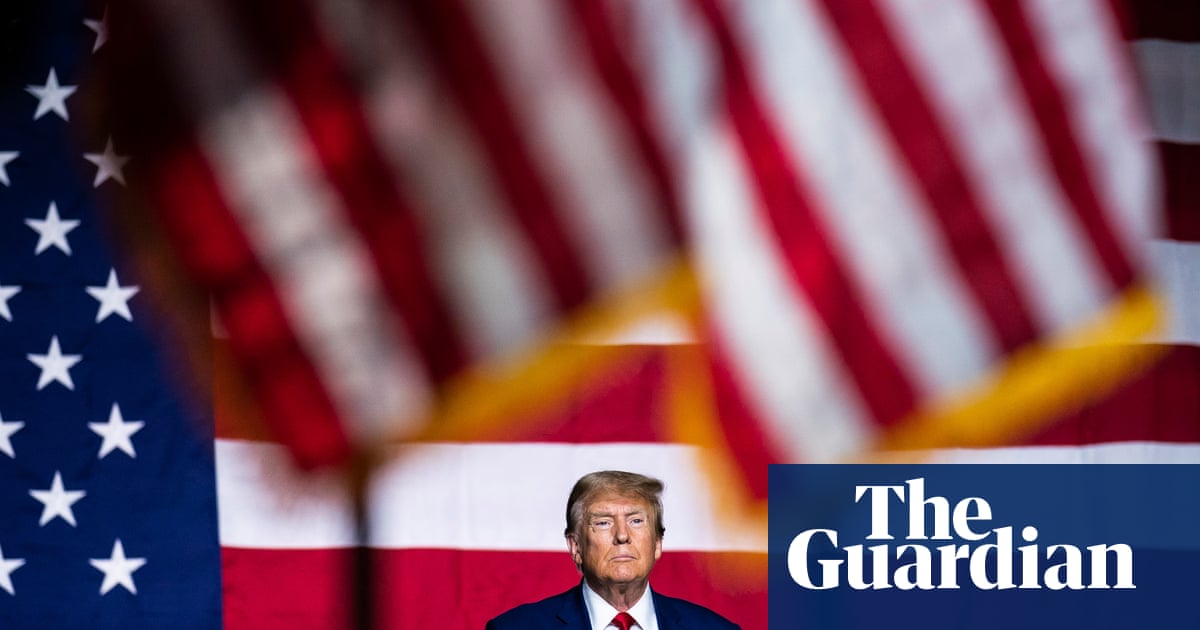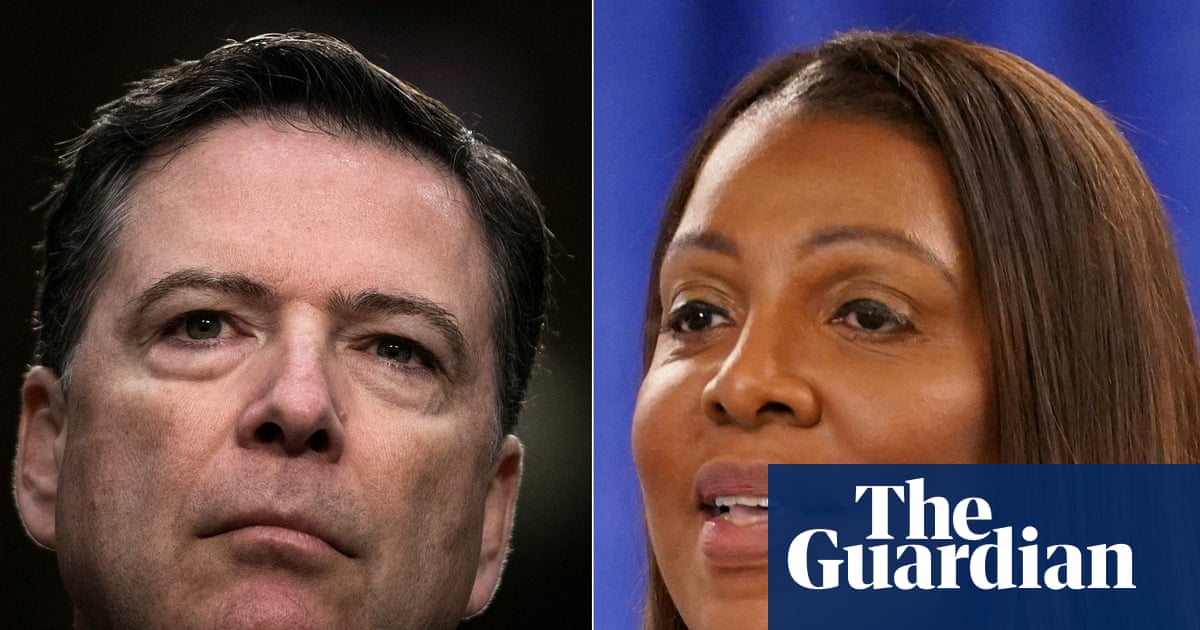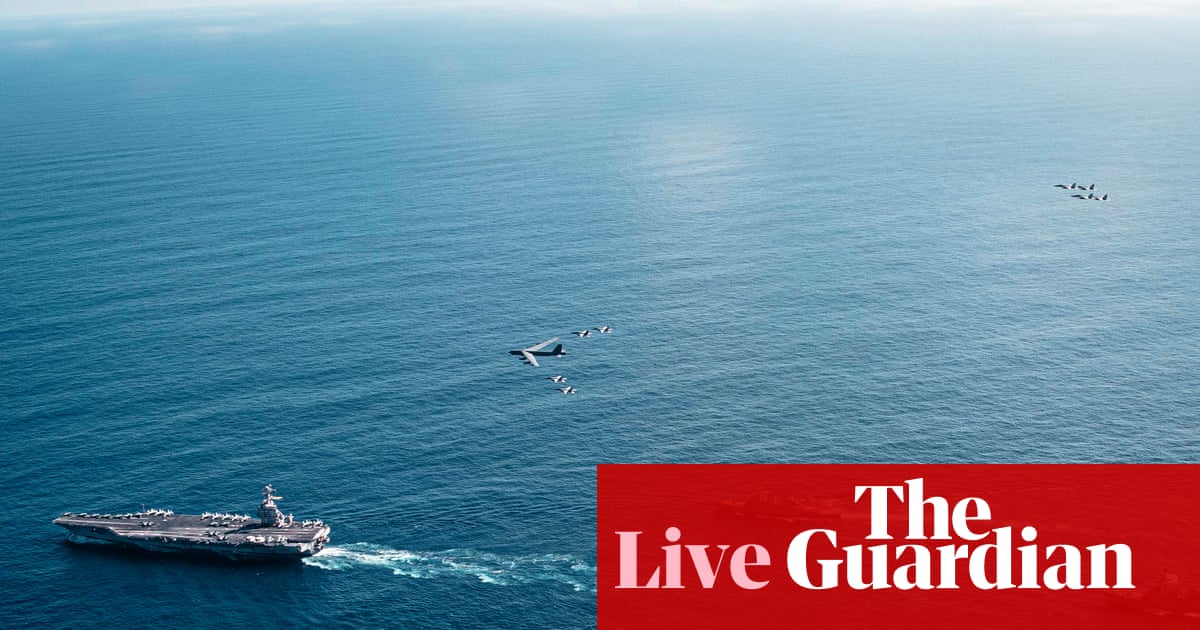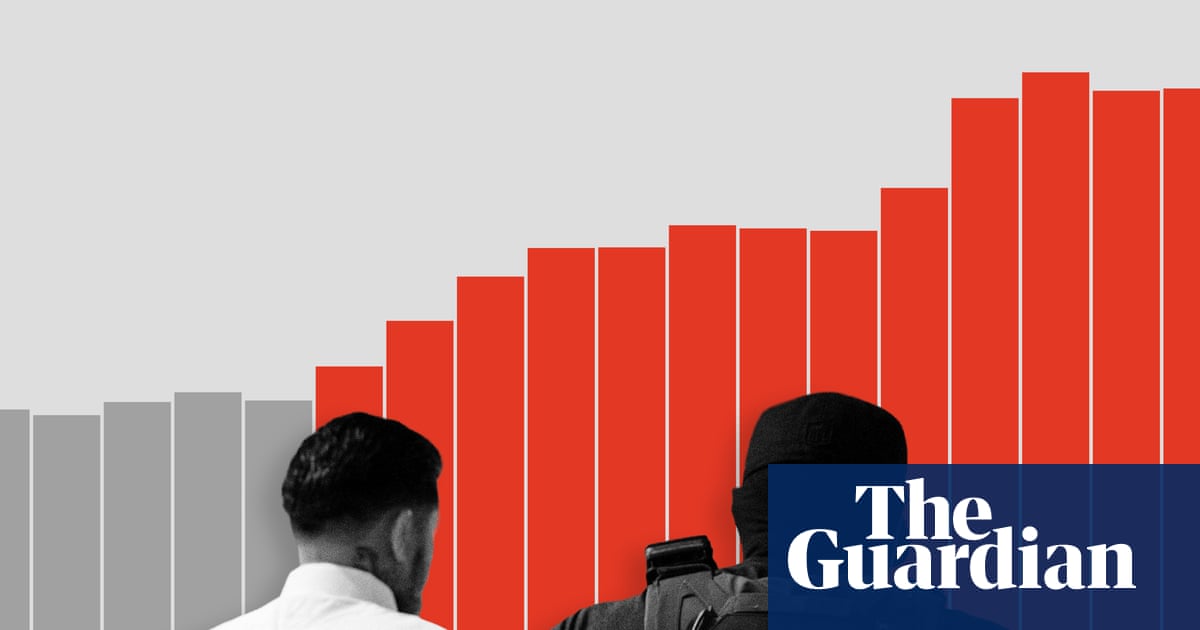The former US vice-president Dick Cheney, who has died aged 84, was one of the most influential holders of that office in American history. While many vice-presidents had to settle for marginal or ceremonial roles, Cheney held a huge sway during the presidency of George W Bush, to the point that he was often referred to as the “real president”.
Bush resented such a characterisation and said the relationship was more complex. He noted that Cheney was respectful, always referring to him in public as Mr President, while he referred to him as Dick. Bush disputed even descriptions of their relationship as a partnership because it implied that they were equals. In spite of such protestations, Cheney found the laidback president pliable on a whole raft of policy decisions.
At the head of a group of neo-conservatives that included the defence secretary Donald Rumsfeld and deputy defence secretary Paul Wolfowitz, he pushed hard for the invasion of Iraq in 2003 in response to the 9/11 attacks on New York and Washington, At the time of the 9/11 attack, Bush had been attending a meeting at a school in Florida. While Bush headed for a secret bunker in Nebraska, Cheney took charge, ordering the shooting down of any unresponsive planes approaching the Capitol building.
Cheney said the attacks changed him, making him become intent on revenge. Along with other neo-conservatives, including Rumsfeld and Wolfowitz, he lobbied for a takeover of Afghanistan in an attempt to capture Osama bin Laden. Cheney then pressed fiercely for the invasion of Iraq, though there was no evidence of Saddam Hussein being involved.
He expressed no regrets about the invasion, in which an estimated 100,000 Iraqis died, nor about the waterboarding of suspects rounded up after 9/11. He told CNN in 2015 that the Iraq invasion, which was based on misleading intelligence repeated by Cheney, was the correct course of action. “It was the right thing to do then. I believed it then and I believe it now.”
But even at the time, there were dissenting voices at a senior level about the mishandling of Iraq. One of the administration’s own special envoys to the Middle East, General Anthony Zinni (2001-03), was not reappointed to the post. “I saw, at a minimum,” he wrote later “true dereliction, negligence, and irresponsibility: at worst, lying, incompetence, and corruption.”
Cheney was not entirely responsible for the Iraq invasion. Even before 9/11, Wolfowitz had called for such action. He had written a memo setting out scenarios in which American interests might be threatened (including “access to vital raw materials, primarily Persian Gulf oil”). Wolfowitz had argued that “the US should be postured to act independently when collective action cannot be orchestrated,” specifically mentioning military moves against Iraq.
Bush too had arrived in the Oval Office vaguely intent on carrying out what his father had notably declined to do in 1991; overthrow Saddam. After he had been sacked by the White House, the treasury secretary Paul O’Neill disclosed how, at the first meeting of the National Security Council in January 2001, Bush had declared his intention of lowering America’s involvement in the Israeli-Palestinian conflict and mooted military action against Iraq.
Bush bore a personal grudge against Saddam, believing he had been behind a plot to kill his father, President George HW Bush, on a visit to Kuwait in 1993. He also resented that one of the biggest hotels in Baghdad had a floor mural with a portrait of his father’s face that everyone had to walk over.
But it was Cheney who was among the most vociferous behind attacking Iraq, repeatedly citing intelligence reports that were either thin or totally misleading. He supported what the Bush administration euphemistically referred to as “enhanced interrogation”, the use of waterboarding and torture.
Responding to a Senate report in 2014 that concluded that no actionable intelligence had resulted from the torture, Cheney dismissed the report as “full of crap”. He told Fox News: “We asked [the CIA] to take steps and put in place programmes to catch the bastards who killed 3,000 of us on 9/11 and make sure it never happened again. That’s exactly what they did and they deserve a lot of credit.”
Cheney revelled in nicknames imposed on him by critics such as Darth Vader and The Prince of Darkness, and by the idea that he was a dark force manipulating Bush. In Peter Baker’s 2013 book about the two, Days of Fire: Bush and Cheney in the White House, Cheney is quoted as saying: “Am I the evil genius in the corner that nobody ever sees come out of his hole? It’s a nice way to operate, actually.”
Controversy over his business interests followed him throughout his time as vice-president. Although he had little experience in business but good contacts in defence, particularly in Saudi Arabia, he was invited to join Halliburton, one of the world’s largest oil and gas conglomerates, in 1995 as chair and chief executive.
In 2000 he became Bush’s running mate for the White House. Controversially, during the Iraq war, Halliburton was awarded US contracts worth billions.
It made him rich. His annual income during his time at the company rose from his $258,394 while defence secretary to $4.4m. When he left in 2000 he had a package worth more than $20m.
A congressman (1979-89) before becoming defence secretary (1989-93) and ultimately vice-president, he was firmly on the right throughout his career, from opposition to abortion to gun control. Described by the Washington Post early in his political career as a moderate, he demanded a correction. He was recognised by Republicans as one of the most hardline rightwingers.
But he was to lose much of that support when he turned against President Donald Trump, particularly over his refusal to accept the result of the 2020 White House election. He described Trump as a coward and threat to the US. In the 2024 White House election, the hard man of the right voted for Trump’s opponent, the Democrat Kamala Harris. His daughter Liz had become a critic of Trump, too, serving as vice chair of the House committee that investigated the 6 January 2021 attack on the Capitol.
Cheney’s style of governing – and confirmation of how much power he wielded – was to sit back and allow others to speak. In the run-up to the war in Iraq, Cheney attended a video-conferencing call in which Bush and Tony Blair, among others, had contributed.
A British official mentioned that Cheney had not spoken. A US counterpart explained: “He just waits until it is finished and then he makes the decision.”
Like many such figures, his private persona did not always match his public one. As the Guardian’s Washington bureau chief, I found myself sitting next to him at a desk for two at a discussion at a rightwing thinktank in Washington. Rather than being awkward and fractious, instead he was surprisingly congenial and had a dry sense of humour, making sardonic comments out of the side of his mouth throughout speeches.
He enjoyed less influence in Bush’s second term, from 2005-2009, in part because of the increasing debacle of Iraq. But he remained powerful, Bush handing over unpleasant tasks such as firings. He suffered a minor embarrassment in 2006 when he shot Harry Whittington, a Texas lawyer, in the face while hunting quail in a ranch in Riviera, Texas. Both said it had been accidental.
Born in Lincoln, Nebraska, he was one of three children of Marjorie (nee Dickey), a softball star, and Richard Cheney Sr, a soil conservation agent for the US agricultural department. He attended Calvert school until the family moved. While at Natrona County high school in Casper, Wyoming, he met the girl who would become his wife, Lynne Vincent. They married in 1964 and had two daughters, Liz and Mary.
He was accepted by Yale University but struggled. After a brief return to the west and two arrests for drunk driving, he went to the University of Wyoming, where he graduated with a master’s in politics in 1966.
While at university, he worked in Congress and came to the attention of Rumsfeld, who later made him his special assistant in President Richard Nixon’s administration. He became the youngest ever White House chief of staff (1975-77) under President Gerald Ford.
After his decade in the House of Representatives he became defence secretary in George HW Bush’s administration. He sent 24,000 troops to invade Panama and overthrow the Manuel Noriega regime.
He considered running for the presidency in 1996. Though he raised money, in the end he decided against, recognising he was a poor candidate. Four years later he was asked to interview running mates for the Republican White House candidate George W Bush, but decided the best candidate was not even on the list: himself.
He is survived by Lynne and his daughters.

 German (DE)
German (DE)  English (US)
English (US)  Spanish (ES)
Spanish (ES)  French (FR)
French (FR)  Hindi (IN)
Hindi (IN)  Italian (IT)
Italian (IT)  Russian (RU)
Russian (RU)  2 weeks ago
2 weeks ago
























Comments